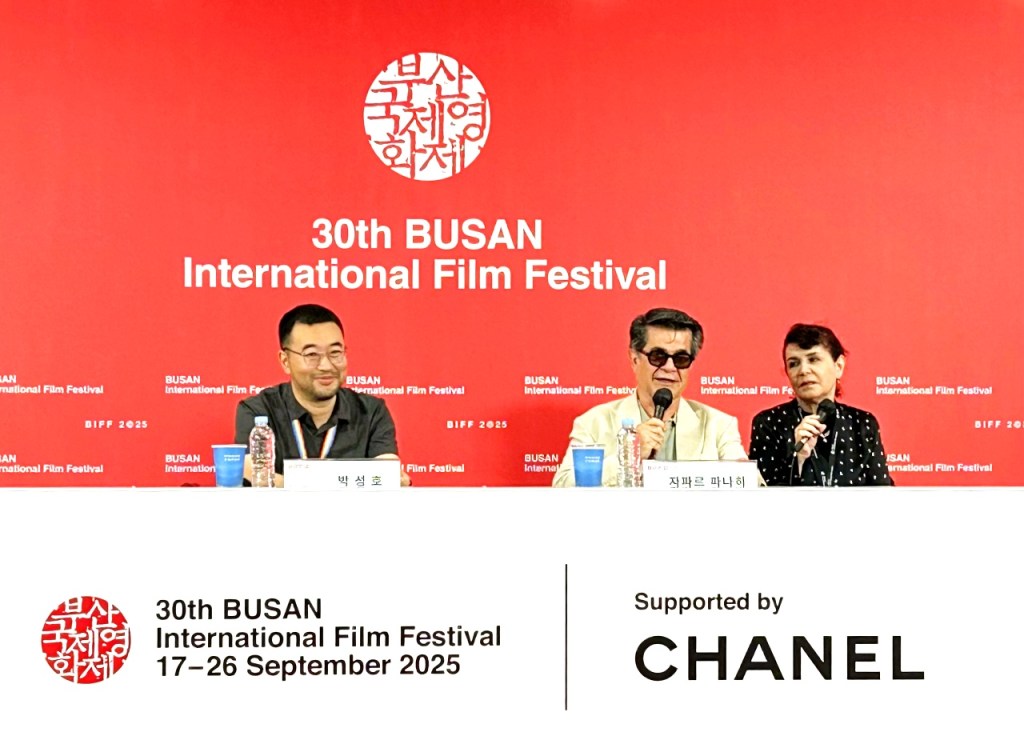Iranian director Jafar Panahi, who has been selected by Busan International Film Festival as this year’s ‘Asian Filmmaker of the Year’, called on the Academy of Motion Picture Arts and Sciences (AMPAS) to separate Best International Film submissions from the control of government-sanctioned selection committees around the world.
He was speaking at BIFF just one day after France’s CNC announced that it would submit his Cannes Palme d’Or-winner It Was Just An Accident as France’s entry for the Best International Feature category of the 98th Academy Awards. The Persian-language film is eligible as it’s a co-production with Paris-based producer Les Films Pelléas and distributed in France by Memento Distribution.
Iran’s government-sanctioned selection committee was never likely to submit the film and has instead put forward Ali Zarnegar’s Cause Of Death: Unknown, a film not considered critical of the Iranian regime.
“We have a slight problem with the Academy and its international selection,” said Panahi, who also has the film screening here in Busan’s Gala Presentations section. “The Academy does not have a specific programme for us. When making films, we can send them to international festivals and don’t have the problem of getting an official permit from Iran. But when it comes to the Academy, we need to get permission from our own government.”
Under AMPAS rules, Best International Film submissions are selected by a separate committee in each country, which in several cases have close ties to repressive government regimes.
Panahi also spoke of his 2006 film, Offside, which Sony Pictures Classics had acquired and planned to support in the Best International Feature race. But the film wasn’t able to compete as it wasn’t put forward by Iran’s Oscars selection committee.
Highlighting that Iran is not the only “closed country” that struggles with this issue, Panahi added: “I think the Academy should find a way to not tie the filmmakers to their governments. All filmmakers who are independent must get together and find a way so that when they want to submit their films to the Academy, they don’t face this kind of problem with the government in their own country.”
Exactly one year ago at Busan, another Iranian filmmaker, Mohammad Rasoulof, who was serving as the president of the New Currents competition jury, faced a similar issue. His Cannes special award winning The Seed Of The Sacred Fig was also not picked as Iran’s submission and ended up representing Germany instead.
Panahi, who is attending BIFF in between trips to Toronto and San Sebastian film festivals, which are also showing It Was Just An Accident, said he’s had around a dozen works screen at the South Korean festival, starting with his 1995 film The White Balloon.
“I remember well the early days of the festival, when it was still quite small and easy for all the guests to meet with each other,” he said, adding that he had been close friends with late BIFF co-founder Kim Jiseok, who was a big fan of Iranian cinema.
Panahi also talked about living under a filmmaking ban, during which time he continued to make films “inside my own heart and my head”, and how he had posed as taxi driver to make the 2015 film Taxi in which he talks to passengers about social challenges in Iran. “Before working on the film, many students came to me and complained how difficult it is to make a film, but after they saw this kind of underground filmmaking they stopped complaining.”
He also talked about his co-writer on It Was Just An Accident, a journalist and human rights activist, who is in his late 40s and has spent more than a quarter of his life in prison for his work on various projects. Explaining the filmmaking process in Iran, he said: “We have to submit the script to the Ministry of Guidance, who will say omit this line or add this part, or you cannot make this script. And if you don’t want to go through this process, then you go through a lot of problems.”
It Was Just An Accident is set to open in Korean cinemas through local distributor Green Narae Media on October 1 – the earliest theatrical release date worldwide along with France. Neon releases the film in North America on October 15.
The post Busan: Jafar Panahi Calls On Oscars To Separate Film Submissions From Government Control appeared first on Deadline.




